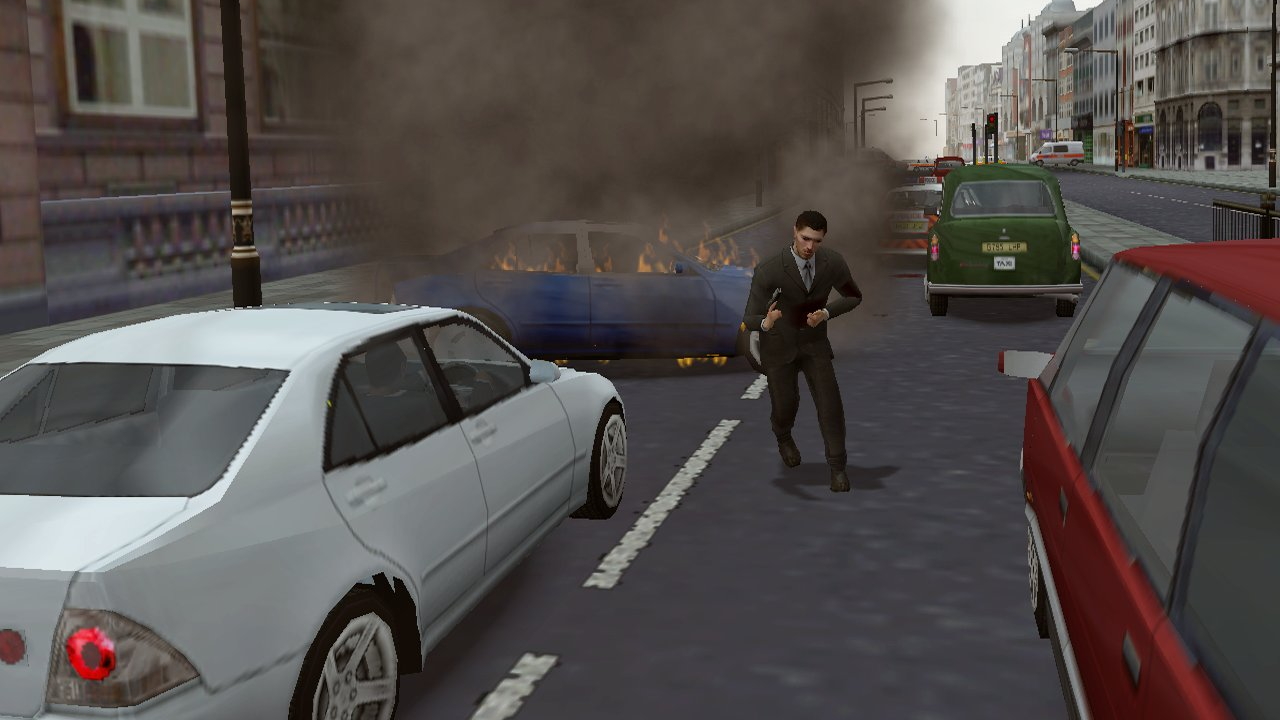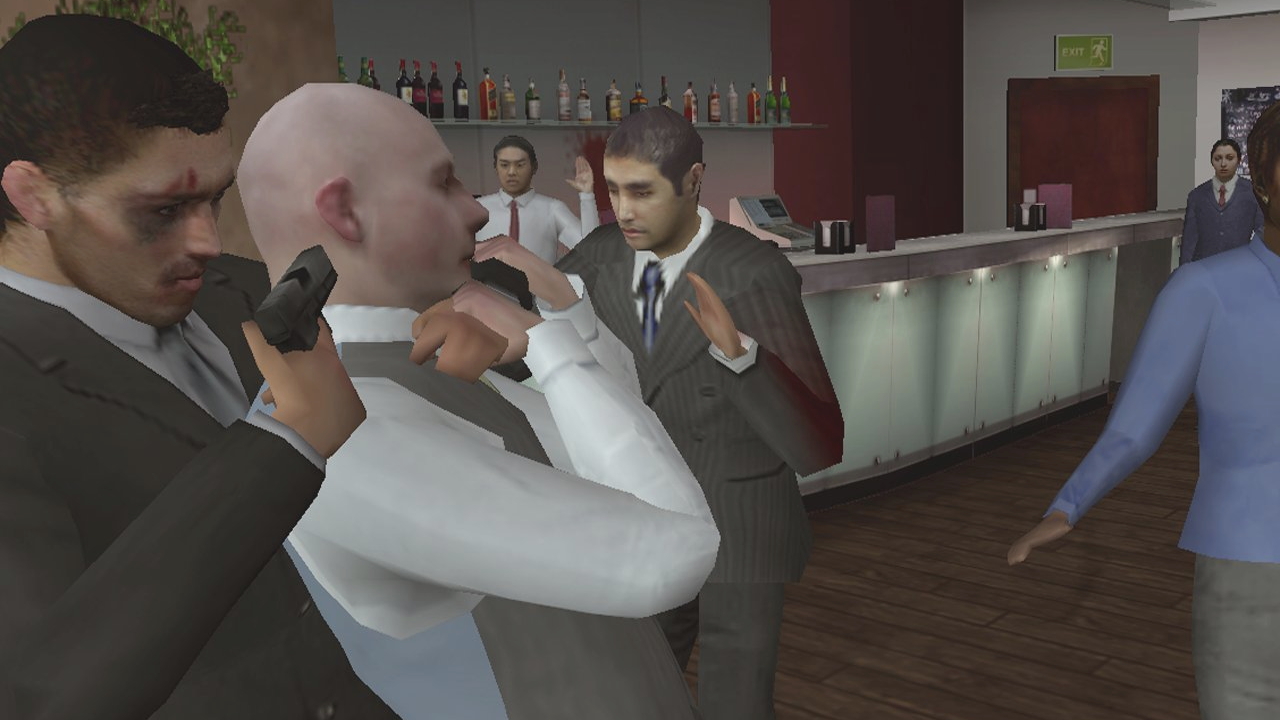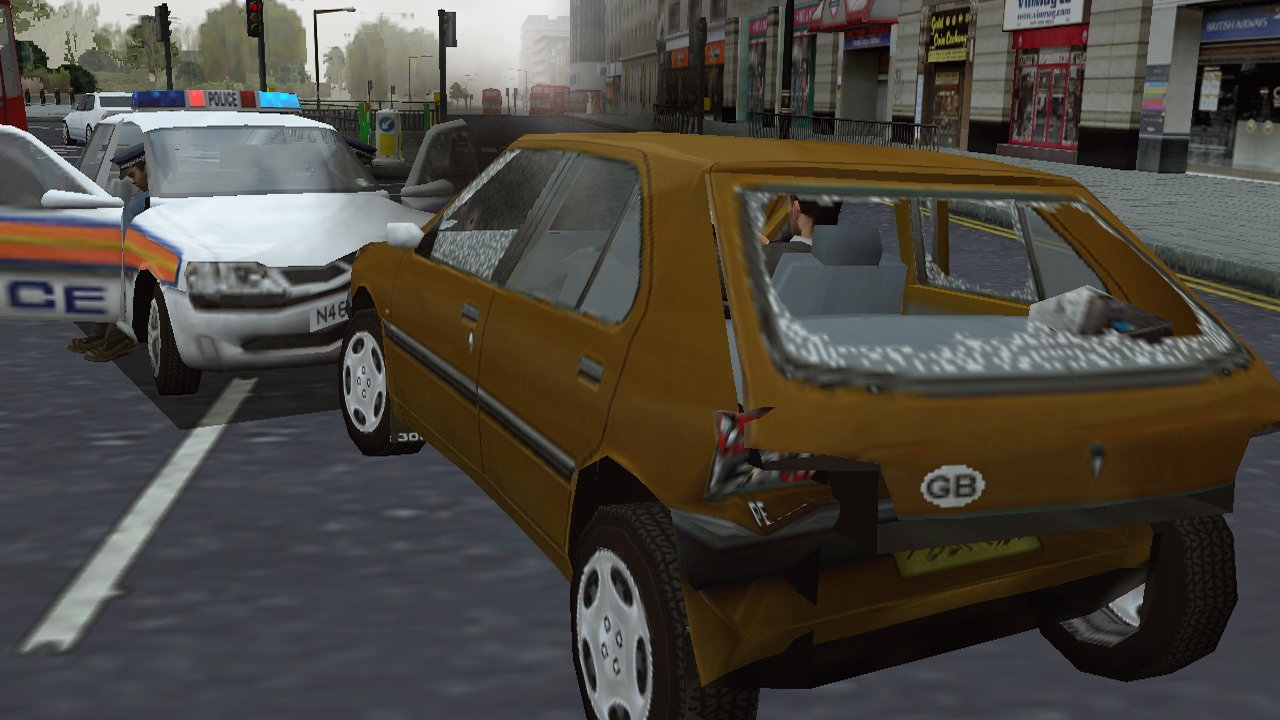After 15 years, take to London's mean streets and ’ave a butcher’s at The Getaway – the grittiest and ’ardest GTA clone

Here's another one of those times you're going to feel really old. Ready? It's The Getaway's 15th birthday. If you don't remember this PS2 classic, it's time to go back to the early noughties when GTA 3's influence manifested itself through the proliferation of urban open-world crime sims, subsequently labelled ‘GTA clones’. In 2002, Team Soho’s The Getaway was one of the first of these, trading GTA’s comical outlook for a grey London of ’ard geezers, rozzers, and thugs shouting “’Ave summa thaaat!” as they shoot you.
In the build-up to release, much was made of how The Getaway’s 40 square miles of accurately mapped London dwarfed GTA 3’s Liberty City, and how you could careen around in real cars like a Saab 9-X, Lexus SC 430 and, err, a BT van instead of GTA 3’s unlicensed stand-ins. Fully mo-capped and with a mouth more foul than a Whitechapel guttersnipe, The Getaway was primed to shake up the fledgling crime sim genre.
- The 11 most WTF missions in Grand Theft Auto's crazy history
- 9 rumours people believed about GTA games (that were totally fake)

It wasn’t quite to be. The driving controls are clunky, and the sclerotic shooting mechanics ill-suited to the mazey, crate-filled warehouses most of the action takes place in. But in other ways The Getaway is an ambitious game that came well before its time. It wasn’t really trying to be GTA, it was an attempt to create a story-driven, cinematic experience; something we wouldn’t see done satisfactorily until the next console generation.
To that end, there is no interface in The Getaway. You are forced to follow diegetic clues for guidance – car indicator lights flash to guide you to missions, while your character will start hobbling when they’ve taken too many shots to the old loaf (of bread... head). It is bloody and ruthlessly realistic, with both the player and enemies going down quickly, so you have to use the game’s early version of a ‘stop and pop’ cover system, whereby you can stick to walls, roll out of cover, and even blind-fire. Again, that’s a mechanic that we would barely see again until years later.

For all its open-world pretensions, The Getaway doesn’t encourage exploration, instead keeping things story-centric. It is a gritty gangland tale – more Get Carter than Lock, Stock – split into two parallel narratives pitting you as a want-out gangster first, before switching to a maverick cop with the insufferable habit of reminding everyone during shootouts and Mexican standoffs that he’s Frank ‘F***ing’ Carter, proud member of the Flying Squad.
While The Getaway is tangentially indebted to the success of 2001 mockney comedy Snatch, which popularised (a comical version of) Britain’s criminal underworld, it is far darker in tone. Main antagonist Charlie Jolson, for example, comes out with uncomfortable racist expletives towards the Chinese and Jamaican gangs, while most of the humour is confined to sarky billboards and bus ads. This is a uniquely grim world full of hard, nasty *blorp*ers.

Playing The Getaway today remains impressive. Seeing street upon street of real storefronts as mundane as Pizza Hut, Jessops, and Argos still evokes a level of verisimilitude rarely seen in other games, even if the textures are blurry and all the shops are inexplicably boarded up.
Weekly digests, tales from the communities you love, and more
It’d be fascinating to see what a Getaway game would look like today, without the technical limitations that kept our experiences of London largely surface-level first time round. With Sony using footage from the never-released Getaway 3 in a PS3 tech demo back in 2005, and setting VR Worlds bundle game ‘The London Heist’ in what appears to be the Getaway universe, the series has lived on in its own way. That gives us hope that one day the city of London may get the open-world crime sim treatment that will really blow us away – lock, stock and barrel.
This article originally appeared in Official PlayStation Magazine. For more great PlayStation coverage, you can subscribe here.
Rob is a freelance games journalist, SEO and content manager. He's written for PC Gamer, GamesRadar, Kotaku, Rock Paper Shotgun, WhatCulture, NextPit, PCGamesN, VG247, Eurogamer, TechRadar, and more.


